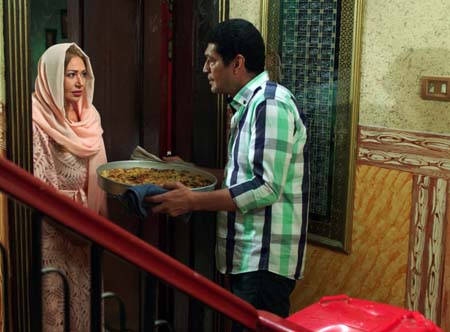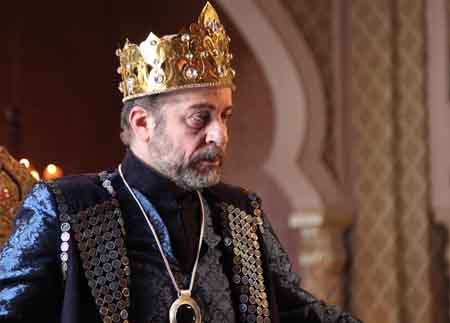The Dubai International Film Festival (DIFF) announced the first line-up for its Arabian Nights out-of-competition programming segment. The segment features a varied selection of films from the region and around the world that touch on aspects of modern Arab life. A total of 18 films for the festivals tenth edition have been selected from around […]

The Dubai International Film Festival (DIFF) announced the first line-up for its Arabian Nights out-of-competition programming segment. The segment features a varied selection of films from the region and around the world that touch on aspects of modern Arab life.
A total of 18 films for the festivals tenth edition have been selected from around the world including entries from France, Spain and Morocco.
Commenting on this year’s programme, Masoud Amralla Al Ali, Artistic Director, Dubai International Film Festival, said: The core of our mandate has always been to provide a platform for Arab cinema to take its place on the world stage. For our tenth year, Arabian Nights has been carefully curated to bring a wide array of the freshest, most engaging films that give voice to the dynamism of this region.
French documentarian Axel Salvatori-Sinz presents The Shebabs of Yarmouk, which follows five Palestinian refugees on the brink of adulthood living in the refugee camp of Yarmouk, in Syria. Despite the conditions, unshakable bonds of friendship are formed, aspirations dashed and frustrations boil over.
French filmmaker and writer Mohamed Hamidi will screen his feature debut, Homeland, which stars comedian Jamel Debbouze and newcomer Tewfik Jallab. The dramedy centers around Farid, a young French-Algerian student sent to Algeria by his sick father. Farid soon finds himself in a situation where he must fight for survival in a country where he has never set foot, whose language he does not speak exactly like his father in France so many years before.
Slimane, from Spanish director José A. Ayalón, is a dark, innovative and stylish documentary-style drama, which follows a group of young Arab immigrants in Spain all first-time actors who face the difficulties of surviving in a foreign land.
The talented Iranian director Taha Karimi tragically passed away this year; his docu-fiction 1001 Apples brings a message of reconciliation and peace. In 1988, the Iraqi Baath party murdered and buried nearly 200,000 Kurds in 350 mass graves. Only a handful of people survived the massacre, including Faraj, who climbed out from amongst the dead and, after escaping to the USA, began campaigning to raise awareness of the genocidal Anfal massacres. This artistic, deeply moving and important film follows his return to Kurdistan where, with four other survivors, he distributed 1001 red apples to bereaved families.
For his first feature film entitled Apaches, Corsican director Thierry de Peretti paints a chilling picture of todays youth. Aziz is a young Arab living in Corsica who, caught stealing with his friends, finds himself the wrong side of the local mafia don, and to survive, turns to the unthinkable. The story is based on a dramatic event that took place on the island a few years ago, Franco-Lebanese director Danielle Arbid plays an important role in this film.
Acclaimed actor Sean Gullette (Pi, Requiem for a Dream), brings to the Festival his stylish directorial feature Traitors. Set in Tangier, the drama features a great soundtrack, as well as fast-rising young star Chaimae Ben Acha, who plays Malika, a conservatively-dressed student and call-centre worker by day, and the leader of an all-girl punk band by night. On the eve of the bands first music video shoot, Malika makes a chance discovery in her parents home that propels her into a long night of troubling adventures.
Mario Rizzis Al Inthitar, a film produced by the Sharjah Art Foundation is the first of a trilogy of documentaries focusing on the emergence of a new civic imagination in Malaysia, Tunisia, Egypt, Bahrain and Syria. Filmed during a seven-week stay in Camp Zaatari, the Syrian refugee camp in the Jordanian desert, the film follows Syrian women pursuing a semblance of normality through the difficulties of their condition.
Antonia Carver, Arabian Nights Programmer added: Fittingly for the decennial DIFF edition, this years Arabian Nights programme reflects the expediential growth of the regional landscape through voices of filmmakers deeply embedded in their communities, their subjects and their craft. The generation coming of age now will inherit a very different Arab world from the one that went before; this years Arabian Nights programme reflects this, and looks and feels very different from past editions.















































































